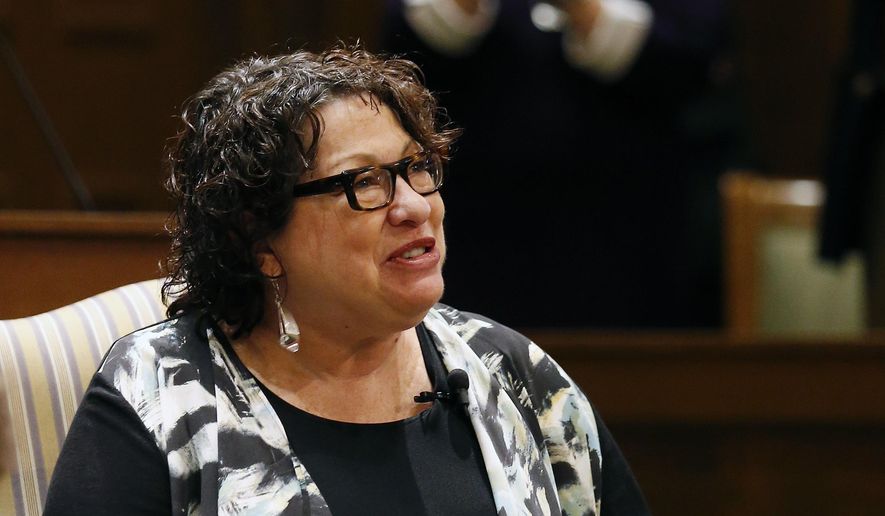The Supreme Court on Monday struck down a law that Puerto Rico passed to restructure a portion of its runaway debt, meaning the island must wait for Congress to rescue it from its swirling fiscal crisis.
The 5-2 ruling sided with creditors who said the U.S. territory unlawfully side-stepped the federal bankruptcy code when it passed the 2014 measure to deal with $20 billion owed by government-owned utilities responsible for electricity, sewers and transportation.
States can permit their cities and utilities to seek bankruptcy protection under Chapter 9, yet Congress barred Puerto Rico from doing so decades ago because it is a territory.
Justice Clarence Thomas, writing for the court Monday, said Puerto Rico nonetheless is still defined as a “state” that cannot pre-empt federal law with its own municipal bankruptcy schemes. If Capitol Hill had wanted to let a territory wiggle out from that fact, “it would have said so” when it amended the rules in 1984.
“Congress does not, one might say, hide elephants in mouseholes,” he wrote.
The upshot is that Congress alone can provide a lifeline to Puerto Rico, which is awash in red ink after years of overborrowing and spending and the steady exit of young, working-age residents who could help turn around the island’s fortunes.
SEE ALSO: House to take first vote to censure IRS chief John Koskinen
The Senate is poised to take up a Puerto Rico debt-relief bill that imposes a seven-member oversight board to review the territorial government’s decisions and petition for debt restructuring, should voluntary negotiations with creditors fail. It easily passed the House last week, 297-127, after months of negotiations among GOP and Democratic leaders and the Treasury Department.
President Obama has said the bill, while imperfect, is needed to protect the island’s 3.5 million inhabitants — a sentiment that advocates for the island echoed in the wake of Monday’s ruling.
“The longer it takes to reach a solution, the worse it gets for Puerto Rico’s people,” said Eric LeCompte, executive director of Jubilee USA, a coalition of religious groups.
The high court’s ruling affirmed decisions in the lower federal courts that sided with investment funds who hold $2 billion in bonds from the island’s Electric Power Authority and objected to Puerto Rico’s Recovery Act, portions of which mirror chapters 9 and 11 in the federal bankruptcy code.
“We are grateful for the Supreme Court’s careful consideration of the case, and are pleased that we now can put this litigation behind us. We look forward now to working collaboratively with [the electric utility] to close our voluntary restructuring of [its] bond debts,” one of the suing investors, BlueMountain Capital Management, said after the ruling.
As it stands, Puerto Rico is swiping money from pension funds and shifting funds dedicated to one pool of creditors to satisfy others as it struggles to pay down $72 billion in bond debt.
It defaulted on $370 million in May, and it faces a $2 billion payment on July 1.
Justice Sonia Sotomayor, whose parents were born in Puerto Rico, wrote in dissent that stripping Puerto Rico of the power to use its own law will leave the island “powerless” to rise above its 3.5 million residents.
“Congress could step in to resolve Puerto Rico’s crisis. But, in the interim, the government and people of Puerto Rico should not have to wait for possible congressional action to avert the consequences of unreliable electricity, transportation, and safe water — consequences that members of the Executive and Legislature have described as a looming ’humanitarian crisis,’” she wrote, joined by Justice Ruth Bader Ginsburg.
In response, Justice Thomas said “our constitutional structure does not permit this Court to rewrite the statute that Congress has enacted.”
Justice Samuel A. Alito Jr. recused himself because his personal investments posed a conflict.
• Tom Howell Jr. can be reached at thowell@washingtontimes.com.




Please read our comment policy before commenting.